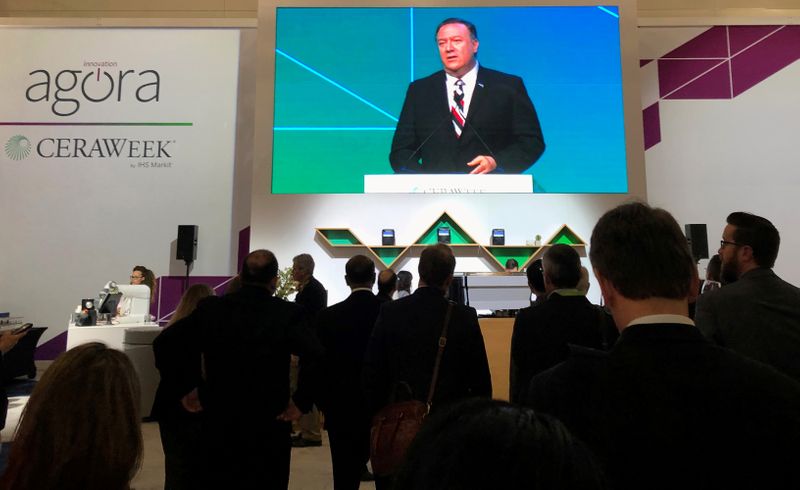NEW YORK – Global energy leaders and other luminaries like Microsoft co-founder Bill Gates bored in on the tough road to transforming world economies to a lower-carbon future at the kickoff of the all-virtual CERAWeek conference on Monday.

Within that, there was a notable bit of tension as some oil and gas executives asserted their primacy, noting the need for fossil fuels to drive economic activity. CERAWeek, the world’s largest oil-and-gas conference, returned this week after a hiatus in 2020 due to the coronavirus pandemic, and at a time when oil demand is still struggling to recover from the demand destruction wrought.
Panelists were quick to talk up ambitious plans for lowering carbon emissions, boosting investment in new technologies related to hydrogen, carbon capture and renewables.
However, the primary message was that achieving “net zero” – where polluting emissions are offset by technologies that absorb carbon dioxide for the atmosphere – is going to be difficult.
“There just isn’t yet enough renewable energy to fuel all of the energy that people need. That’s in developed countries,” said Andy Jassy, head of Amazon.com Inc’s cloud division who will succeed Jeff Bezos as CEO this summer.
He said the company had announced its goal for net zero emissions at a time when it had not entirely figured out how to get there.
In a keynote discussion, Gates focused on what he called the “green premium,” the cost of products or investments that are more environmentally friendly compared with those that emit more pollution. As technologies improve, those costs will decline.
Coronavirus stopped billions of people from traveling and wiped out one-fifth of worldwide demand for fuel. The U.S. fossil fuel industry is still reeling after tens of thousands of jobs were lost. The pandemic has also accelerated the energy transition, interrupting a steady rise in fuel consumption that may have otherwise continued for several more years unabated.
Since the 2019 conference, many of the world’s major oil companies have set ambitious goals to shift new investments to technologies that will reduce carbon emissions to slow global warming. U.K.-based BP Plc has largely jettisoned its oil exploration team; U.S. auto giant General Motors Co announced plans to stop making gasoline and diesel-powered vehicles in 15 years.
“The tone is different: There’s one theme that permeates the entire conference and that is energy transition,” said CERAWeek Founder Dan Yergin, vice chair of IHSMarkit.
Several of those oil companies also wanted to make clear that they had a role to play as well, even as governments worldwide seek to boost renewable investment.
“We have to put all our effort in to decarbonise our society, but oil and gas are going to be a part of this combination,” said Repsol CEO Josu Jon Imaz.
Other speakers expected to appear include several representatives from national oil companies along with CEOs of Exxon Mobil, Total, Chevron and Occidental Petroleum.
But they will also participate in panels focusing on the energy transition. Occidental CEO Vicki Hollub and Ahmed Al Jaber, United Arab Emirates minister of state, are slated to tackle cutting carbon emissions. Mohammed Barkindo, secretary general of the Organization of the Petroleum Exporting Countries, was scheduled to appear, but backed out, citing a conflict.
Oil companies have come under increasing pressure from shareholders, governments and activists to show how they are changing their businesses from fossil fuels toward renewables, and to accelerate that transition.
However, numerous speakers warned that the viability of certain technologies, such as hydrogen, remains far in the future.
Some CEOs warned that more oil-and-gas investment was necessary.
“We don’t think peak oil is around the corner – we see oil demand growing for the next 10 years,” said John Hess, CEO of Hess Corp. “We’re not investing enough to grow oil and gas in the future,” he said, explaining that prices would need to rise to support that investment.
[contextly_sidebar id=”IW6q1dYN7EEi81CaRXWOYVe9mQ2CXROO”]






